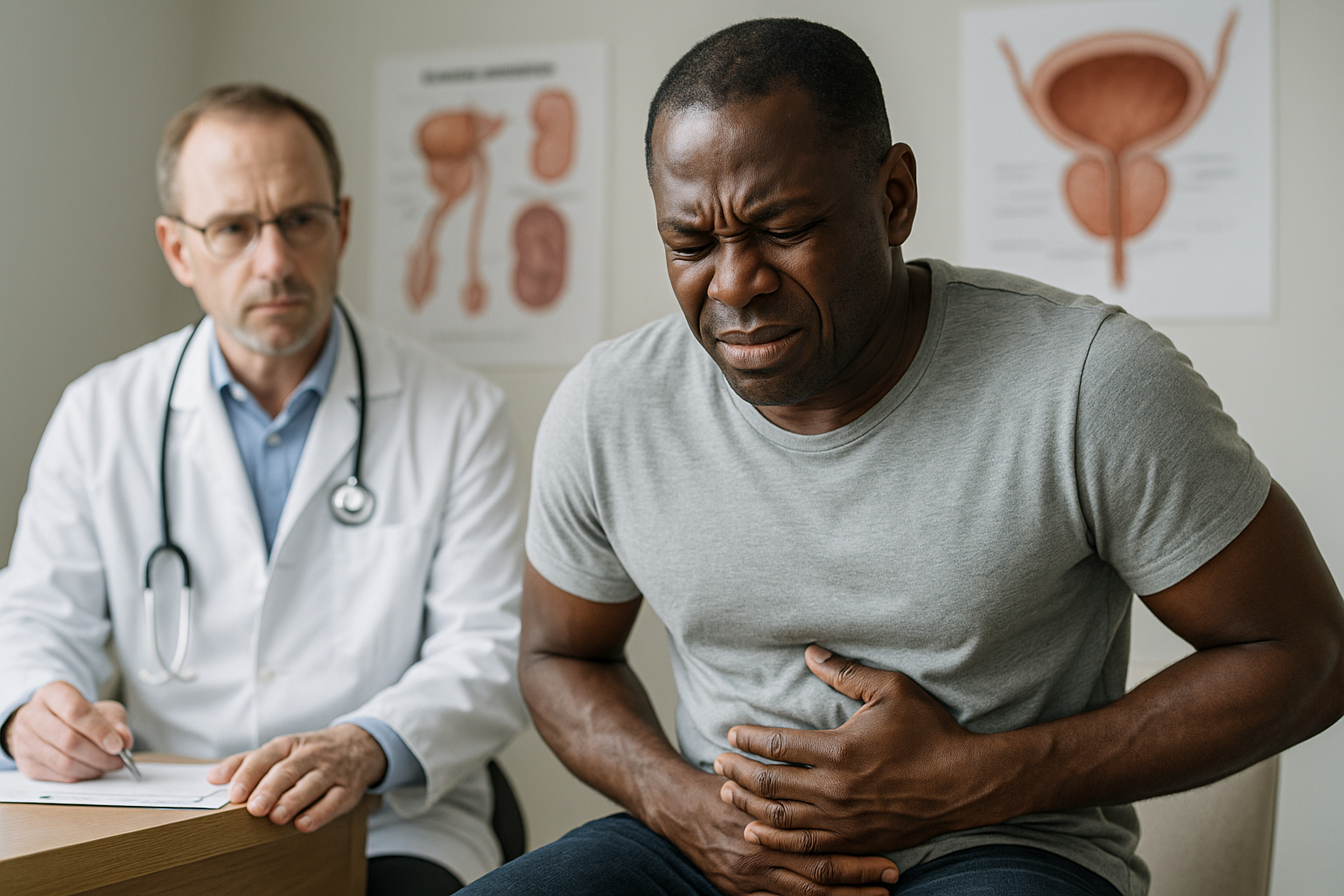Prostatitis — an inflammation of the prostate — is more common than many men realise, including in the UK’s Nigerian community. Whether you’re working long hours, under stress, or balancing life in a new country, it’s important to understand this often painful condition that can affect your daily life and wellbeing.
What is Prostatitis?
Prostatitis refers to swelling or inflammation of the prostate gland. Symptoms can range from discomfort during urination, pain during ejaculation, to pain in the lower back or between the scrotum and anus. Some men even experience the sudden urge to urinate at night.
There are four main types:
1. Acute Bacterial Prostatitis
This type comes on quickly, often due to infections like E. coli. Symptoms can include fever, chills, and difficulty urinating. If your urine is completely blocked, it becomes a medical emergency — don’t delay getting to A&E.
2. Chronic Bacterial Prostatitis
This is a longer-lasting infection that can cause on-and-off symptoms. It’s more common in older men and can sometimes linger for months without a clear cause.
3. Chronic Nonbacterial Prostatitis (CPPS)
This is the most common form — and often the most frustrating. It can be triggered by stress, physical trauma, or even past infections. Pain can affect the pelvic area, and the cause isn’t always known.
4. Asymptomatic Inflammatory Prostatitis
This is usually discovered by accident — such as during fertility checks or prostate exams — and often doesn’t require treatment.
What Nigerian Men in the UK Should Know
Many Nigerian men are hesitant to speak about intimate health issues, but silence can delay diagnosis. Prostatitis is not the same as prostate cancer, but it can cause a spike in PSA (prostate-specific antigen) levels — which can be scary without proper information.
If you’re experiencing unusual urinary symptoms or pelvic pain, speak to your NHS GP. Culturally sensitive health care is improving in the UK, and your voice matters.
Treatment Options
For Bacterial Prostatitis
Doctors typically prescribe antibiotics like ciprofloxacin or fosfomycin, often for 4–6 weeks. Make sure to complete your medication and follow up with your doctor.
For Chronic Nonbacterial Prostatitis (CPPS)
Because this isn’t caused by bacteria, antibiotics won’t help. Treatment might include:
- Anti-inflammatory medication like ibuprofen
- Alpha blockers (e.g., tamsulosin/Flomax) to relax the bladder and prostate muscles
- Tadalafil (Cialis) to improve blood flow
Physical therapy, such as trigger point massage or myofascial release, has helped many men manage pain. However, avoid Kegel exercises — they may worsen symptoms by tightening pelvic floor muscles.
Holistic Approaches Are Gaining Ground
Research increasingly supports acupuncture and mindfulness for CPPS. A 2023 study found acupuncture provided symptom relief for up to 6 months. Mental health support is also crucial — many men with CPPS suffer from stress, anxiety, or depression, which can worsen the pain.
Cognitive Behavioural Therapy (CBT) and stress-reduction techniques like mindfulness can help you manage the condition and maintain a good quality of life.
Bottom Line:
If you’re a Nigerian man living in the UK and facing any of these symptoms, don’t suffer in silence. Prostatitis is common, treatable, and nothing to be ashamed of. Speak to a GP, and explore both medical and holistic treatment options. Your health is your wealth — even more so abroad.
— Naija UK Connect Health Team
Stay informed. Stay well. Stay connected.
Join Our WhatsApp Channel
Stay updated on the latest UK news, including education, health, job openings, and more for those living in the UK!
Join here: Naija UK Channel
Also, follow us on our social media channels for the latest updates and discussions:
- Twitter: @NaijaUKConnect
- Facebook: Naija UK Connect
- Instagram: @naijaukconnect




